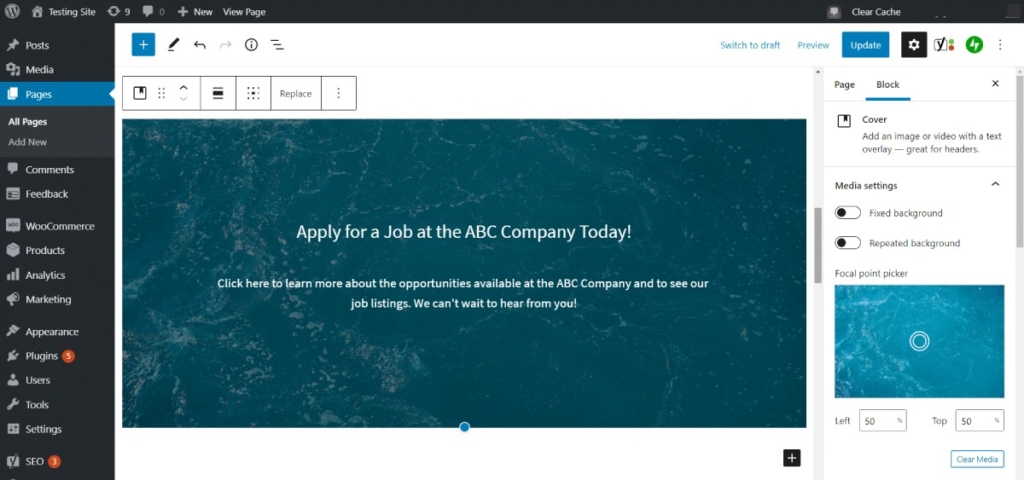Benefits of WordPress over Salla
In this blog, we’ll explore the benefits of choosing WordPress over Salla and explain why WordPress might be the better option for your online presence.
When selecting a platform to build your website or e-commerce store, it’s important to choose one that aligns with your business goals and long-term needs. WordPress and Salla are two popular platforms, but they cater to different audiences. While Salla is ideal for launching quick e-commerce stores, WordPress offers superior flexibility, customization, and scalability, making it a more robust solution for many businesses.

1. Unmatched Flexibility and Customization
- WordPress is an open-source platform, which means you have full control over your website. Whether you need a simple blog, a portfolio site, or a complex e-commerce store, WordPress allows you to build exactly what you need with virtually no limitations.
- You can choose from thousands of themes and plugins to customize your site’s look and functionality. If you have specific design or feature requests, WordPress allows you to either use pre-built tools or even hire developers to create unique custom solutions.
- Salla, on the other hand, is more limited. It’s primarily designed for launching e-commerce stores quickly, with fewer customization options. While it’s easy to use, it doesn’t offer the extensive customization or design freedom that WordPress does.
2. Advanced SEO Capabilities
- Search Engine Optimization (SEO) is a critical factor for any website. WordPress shines when it comes to SEO, thanks to plugins like Yoast SEO and Rank Math, which give you full control over your site’s meta tags, keywords, sitemaps, and schema markup. These tools help you optimize your site for higher search engine rankings and better visibility.
- While Salla does offer basic SEO features, the options are more restricted compared to the advanced SEO tools available with WordPress. If SEO is a priority, WordPress will give you greater control and flexibility to optimize your site for search engines.
3. Scalability and Growth
- As your business grows, your website needs to scale along with it. WordPress can handle websites of any size, from small blogs to massive corporate websites and e-commerce platforms with thousands of products. Its scalability makes it a great choice for long-term business growth.
- With WooCommerce (a powerful e-commerce plugin for WordPress), you can create a fully-functional online store that scales with your business. WooCommerce offers more customization options for product pages, payment gateways, and customer experiences compared to Salla.
- Salla is ideal for businesses that need a quick solution to start selling online. However, as your store grows, you may find Salla’s capabilities limiting. It’s a great short-term solution but lacks the advanced features required to support large-scale online stores or multi-functional websites.

4. Content Management Beyond E-commerce
- One of the biggest advantages of WordPress is its versatility. It’s not just for e-commerce; it can handle blogs, portfolios, forums, membership sites, and more. If your business requires multiple types of content (like a blog, services page, and an online store), WordPress gives you the tools to create and manage them all in one place.
- Salla is exclusively focused on e-commerce. If your needs go beyond running an online store—such as managing a blog or offering downloadable resources—Salla lacks the content management capabilities that WordPress provides.
5. Wide Range of Plugins and Integrations
- WordPress has an ecosystem of over 58,000 plugins, which can be used to add virtually any feature to your site, from social media integrations to security features, email marketing tools, and more. This gives you the ability to enhance your website’s functionality as your business needs change.
- In contrast, Salla has limited third-party integration options. While it does support some essential e-commerce tools, its plugin library is far smaller, and adding custom functionality can be difficult without advanced technical skills or external developers.
6. Community Support and Resources
- WordPress has a massive global community of developers, designers, and users, which means there are endless resources available for troubleshooting, custom development, and support. Whether you’re looking for tutorials, free plugins, or community-driven solutions, WordPress has a wealth of information available.
- While Salla offers support, it’s a relatively smaller platform with a more limited community. The availability of resources, guides, and third-party tutorials is far more restricted compared to WordPress.
7. Cost-Effectiveness and Ownership
- With WordPress, you have the freedom to choose your hosting provider, which allows you to control costs and pick a plan that matches your budget. There are also thousands of free themes and plugins available, making WordPress a cost-effective solution in the long run.
- Although Salla offers affordable pricing for quick e-commerce setups, it operates on a SaaS (Software-as-a-Service) model. You are tied to their hosting and pricing structure, which can become restrictive as your business grows. Additionally, you don’t have full ownership over the platform, as you do with a self-hosted WordPress site.

Conclusion: The Benefits of WordPress over Salla
Choosing between WordPress and Salla depends on your long-term goals. Salla is great if you need a fast, easy-to-use platform to quickly launch an online store, particularly if your business focuses on the Middle Eastern market.
However, if you’re looking for complete control, flexibility, and the ability to scale your website or online store over time, WordPress is the better choice. It offers advanced SEO tools, greater customization, and the flexibility to manage a wide range of content types—all while being more cost-effective and scalable for businesses with growth in mind.
By choosing WordPress, you’re not just investing in a website for today, but in a platform that can adapt and grow as your business evolves.
| Feature | WordPress 🌍 | Salla 🛒 |
|---|---|---|
| Best For | Businesses that need full control, customization, and scalability | Small businesses & startups that need a quick & easy e-commerce solution |
| Ease of Use | Requires some technical knowledge but offers flexibility | Very user-friendly, designed for beginners |
| Customization | Fully customizable with thousands of themes & plugins | Limited customization options (pre-designed templates) |
| SEO Capabilities | Powerful SEO features (Yoast SEO, Rank Math) with full control over metadata | Basic SEO tools, but limited compared to WordPress |
| E-commerce Features | Uses WooCommerce (or other plugins) for full control over products, payments & shipping | Built-in e-commerce platform (simpler but less flexible) |
| Plugins & Integrations | Over 50,000 plugins available for any function | Limited third-party integrations |
| Multilingual Support | Supports multiple languages with WPML, Polylang, etc. | Limited support for multiple languages |
| Hosting & Ownership | Self-hosted (you choose your own hosting, domain, etc.) | Hosted by Salla (you don’t control the hosting) |
| Pricing | Costs vary (hosting, domain, themes, plugins) but offers long-term cost efficiency | Subscription-based pricing (monthly fees) |
| Scalability | Ideal for large businesses & enterprises | Best for small to medium businesses |
| Community & Support | Massive global community, forums, and tutorials | Local support (Arabic-focused) but smaller community |

